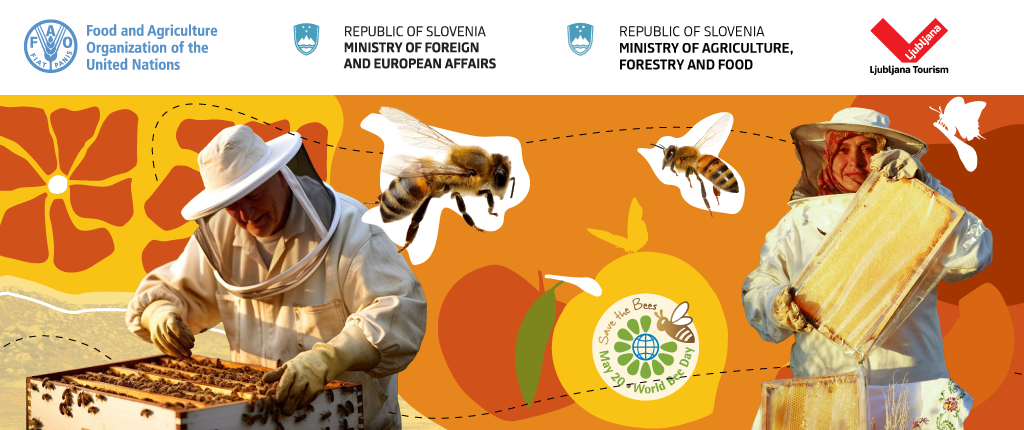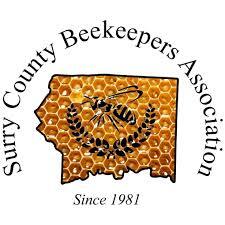Students Challenged to Use Science to Solve the “Honey Bee Challenge” in 2016 4-H Ag Innovators Experience Youth in eight states will “create a buzz” learning real-world science and technology skills
Ten thousand young people throughout the Midwest will participate in the “Honey Bee Challenge,” this year’s 2016 4-H Ag Innovators Experience activity, which teaches youth, ages 9-15, about the critical role that honey bees play in growing food and feeding the world.
The “Honey Bee Challenge” engages youth in connecting honey bees to the foods they eat, as well as learning best management practices and foraging behaviors. The activity, created by The Ohio State University, also connects kids with ways to contribute to honey bee health in their own communities. Youth in Iowa, Illinois, Indiana, Kansas, Michigan, Missouri, Nebraska and Ohio will have the opportunity to participate in the “Honey Bee Challenge.”
Based on the USDA MyPlate model, youth will begin with a “Farm-to-Plate” Honey Bee activity to connect the work of honey bees to the MyPlate food groups. Working in groups, youth will model a colony of worker bees using bristle-bot platforms and modeling materials to explore honey bee habitats in various ecosystems; to understand the important role of honey bees in agriculture and food production; to understand the threats to honey bee habitats and how threats are being addressed; and to identify best practices for preserving and maintaining honey bee habitats. Groups are evaluated on the accuracy of their bee models, efficient use of foraging route materials, collection of pollen and time spent completing.
The 4-H Ag Innovators Experience (4-H AIE) seeks to help youth develop workforce skills and drive innovation using science, technology, engineering and mathematics (STEM). In two years, the program has already engaged nearly 20,000 youth and succeeded in making STEM concepts relevant and fun with activities across select states in the Midwest.
“Honey bees help to feed the world’s population. One out of every three bites eaten is there because of the work of these pollinators,” said National 4-H Council President and CEO Jennifer Sirangelo. “Engaging kids in STEM challenges, like the 4-H Ag Innovators Experience, teaches young people about the importance of pollinators in their own communities. Developing interest and workforce skills in agriculture innovation and agriculture careers is critical as our future belongs to the ingenuity and leadership of young people.”
“We’re excited about continuing our longstanding partnership with National 4-H Council with the Ag Innovators Experience,” said Mark Martino, National 4-H Council board member. “With the agriculture industry needing more talented and passionate professionals than ever before, we’re happy to help give 4-H members another hands-on opportunity to learn about ag and grow in the industry.”
The “Honey Bee Challenge” will take place from March – July 2016 at various sites, including traditional 4-H clubs, 4-H camps, school enrichment and 4-H Afterschool settings. The 4-H Ag Innovators Experience (4-H AIE) is a collaboration between the National 4-H Council and Monsanto Company.
About 4-H 4-H, the nation’s largest youth development organization, grows confident young people who are empowered for life today and prepared for career tomorrow. 4-H programs empower nearly six million young people across the U.S. through experiences that develop critical life skills. 4-H is the youth development program of our nation’s Cooperative Extension System and USDA, and serves every county and parish in the U.S. through a network of 110 public universities and more than 3000 local Extension offices. Globally, 4-H collaborates with independent programs to empower one million youth in 50 countries. The research-backed 4-H experience grows young people who are four times more likely to contribute to their communities; two times more likely to make healthier choices; two times more likely to be civically active; and two times more likely to participate in STEM programs.
Learn more about 4-H at www.4-H.org, find us on Facebook at www.facebook.com/4-H and on Twitter at https://twitter.com/4H.








